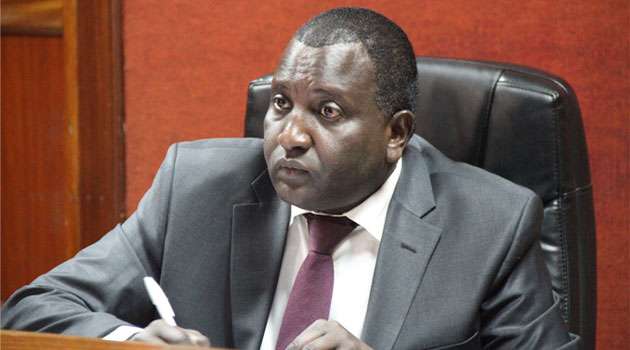The High Court Constitutional Division in Nairobi, Kenya, has suspended a recent decision by the Kenya Copyright Board (KECOBO) to deregister the country’s three collective management organizations, Music Copyright Society of Kenya (MCSK), the Performers Rights Society of Kenya (PRISK) and the Kenya Association of Music Producers (KAMP)-CMOs, from collecting royalties.
This follows a case filing on 14th July 2021 by KECOBO seeking orders to freeze bank accounts in which jointly collected royalties were being held and to stop the CMOs from operating. It also wanted permission to collect and distribute royalties to copyright holders on its own or through an agent.
But on 27th July 2021, the court declined to grant these demands until 3rd November this year when the matter is scheduled for a hearing.
However, at a court session today, 31st August 2021, a ruling was made by Justice Weldon Korir where he ordered that the Music Copyright Society of Kenya (MCSK), the Performers Rights Society of Kenya (PRISK), and the Kenya Association of Music Producers (KAMP) who make up the CMOs continue to collect royalties. The understanding is that the CMOs will submit a report to KECOBO accounting for royalties collected until the hearing date.
Judge Korir noted that the owners of copyright works would suffer during the three months envisaged by the regulator before issuing a new license to another CMO.

Stonebwoy claps back at Rex Omar for attacking him
Ded Buddy backlashes GHAMRO, labels them as ‘clowns of clowns’
Background of the story
It can be recalled that KECOBO’s board of directors issued a public notice deregistering the CMOs and subsequently halted the collection of royalties for three months. The copyright board, KECOBO said it would use this time to reform the legal structures for the collection societies in order to prevent the misuse of funds, as gathered from a forensic audit report it commissioned in 2020.
KECOBO noted that the decision to deregister the Music Copyright Society of Kenya (MCSK), the Performers Rights Society of Kenya (PRISK), and the Kenya Association of Music Producers (KAMP) follow cause letters issued to the CMOs for noncompliance of licensing conditions, specifically the breach of administrative cost limits and the diversion of royalties into an undeclared account that is not monitored by KECOBO.

Several submissions were also received from rights holders in response to a KECOBO public notice that invited them to comment on whether the CMOs’ licenses should be renewed or revoked.
Mutuma Mathiu who is the Chairman of KECOBO said:
“The main issues flagged by the board of directors include the opening of a different account other than the KPM account authorized by KECOBO, having spent more than 65% of the finances on administration cost contrary to directives and not undertaking their role of engaging the public and raising awareness about the KPM system”.
KECOBO, Mutuma Mathiu
Well, ironically, this transpired just five months after the High Court of Kenya in Nairobi issued an order restraining KECOBO from interfering with the MCSK’s administration and enforcement processes, as well as with the collection and distribution of royalties with respect to performance and production rights.




















